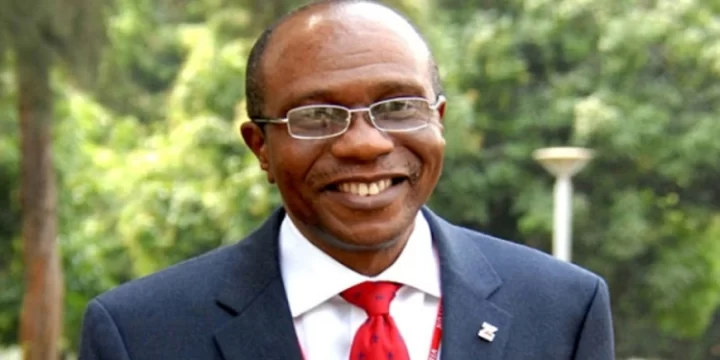The Governor of the Central Bank of Nigeria (CBN), Godwin Emefiele, has disclosed that the number of fertilizer blending plants in Nigeria, has risen from 7 to over 48, since the assumption of office by President Muhammadu Buhari in 2015. This is as 35 million blended bags of fertilizer has been produced in the country within the last 5 years.

Emefiele made known this while speaking at the official commissioning of the $2.5 billion Dangote Fertilizer plant at Ibeju-Lekki, by President Muhammadu Buhari, on Tuesday.
The CBN Government attributed this achievement to the efforts of the Presidential Fertilizer Initiative which was set up by the President to resolve the perennial fertilizer shortages and ultimately ensure food sufficiency in the country.
Emefiele in his statement said, “Prior to Mr President assuming office in 2015, Nigeria imported virtually all its fertiliser products to support its agricultural sector. In response to this situation, Mr President inaugurated the Presidential Fertiliser Initiative chaired by the Governor of Jigawa State, Governor Badaru, and checked with us to resolve this perennial fertiliser shortage problem.
“I am delighted to note that their work and the continued support of Mr President has resulted in a significant increase in our nation’s blending capacity from seven plants in 2015, to over 48 active fertiliser blending plants today.
‘’Indeed during the last 5 years, over 35 million blended fertilizer bags have been produced in Nigeria. Consequently, our import bill on fertilizer has not only declined significantly, but we are also witnessing investment in the fertilizer industry such as the one being commissioned by the Dangote Group.’’
The CBN boss also highlighted some of the benefits of having more fertiliser blending plants to the nation’s economy.
He said, “Our import bill on fertiliser has not only declined significantly, but we are also witnessing rising investment in the fertiliser industry, such as the one being commissioned today by the Dangote Group.
“Today, Nigeria is self-sufficient in the production of urea, and we are also leading in the production of urea on the African continent.
“There is no doubt that improving access to fertiliser will contribute to significant improvement in productivity of our local farmers but probably, more importantly, it will enhance our nation’s drive to improve food security and ensure we consume what we produce in Nigeria, thereby fulfilling another key promise and vision of the administration.”
Support InfoStride News' Credible Journalism: Only credible journalism can guarantee a fair, accountable and transparent society, including democracy and government. It involves a lot of efforts and money. We need your support. Click here to Donate
